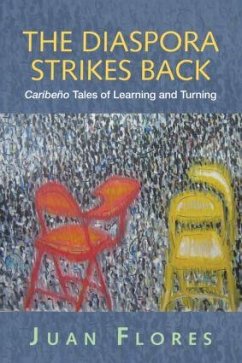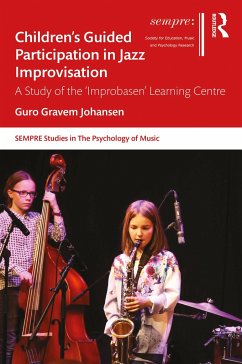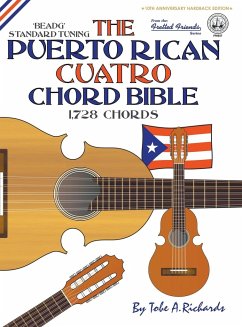
Soundscapes from the Americas
Ethnomusicological Essays on the Power, Poetics, and Ontology of Performance
Versandkostenfrei!
Versandfertig in 1-2 Wochen
63,99 €
inkl. MwSt.
Weitere Ausgaben:

PAYBACK Punkte
32 °P sammeln!
Dedicated to the late Gerard Béhague (1937-2005), whose pioneering work in Latin American music, popular culture, and performance studies contributed extensively to ethnomusicological discourse in the 1970s-1990s, this anthology offers comparative perspectives on the evolving legacy of performance ethnography in socio-musical analysis. President of the Society for Ethnomusicology from 1979-81, editor of its journal, Ethnomusicology, from 1974-78, and founder and editor of the trilingual Latin American Music Review from 1980 until his death, Béhague also established the ethnomusicology gradua...
Dedicated to the late Gerard Béhague (1937-2005), whose pioneering work in Latin American music, popular culture, and performance studies contributed extensively to ethnomusicological discourse in the 1970s-1990s, this anthology offers comparative perspectives on the evolving legacy of performance ethnography in socio-musical analysis. President of the Society for Ethnomusicology from 1979-81, editor of its journal, Ethnomusicology, from 1974-78, and founder and editor of the trilingual Latin American Music Review from 1980 until his death, Béhague also established the ethnomusicology graduate program at the University of Texas at Austin in 1974, thereby influencing the training and thinking of dozens of the field's practitioners. Among these are the volume's eight authors, whose contributions reflect the heritage but also contemporary trajectories of Béhague's scholarly concerns. Prefaced by an essay outlining key developments in the ethnography of performance paradigm, the volume's seven case studies portray snapshots of musical life in representative communities of the Americas, including the southwestern and Pacific United States, Puerto Rico, Bolivia, Chile, Cuba, and Ecuador. Situated in milieus ranging from the indigenous festivals of the Andean highlands, to the competitive public gatherings of poet-singers in post-Pinochet Chile, to the Puerto Rican dance halls of the Hawaiian islands, these studies pose anthropological inquiries into the ontology of performance practice, the social power of poetic performativity, and the experience and embodiment of sound in place.














